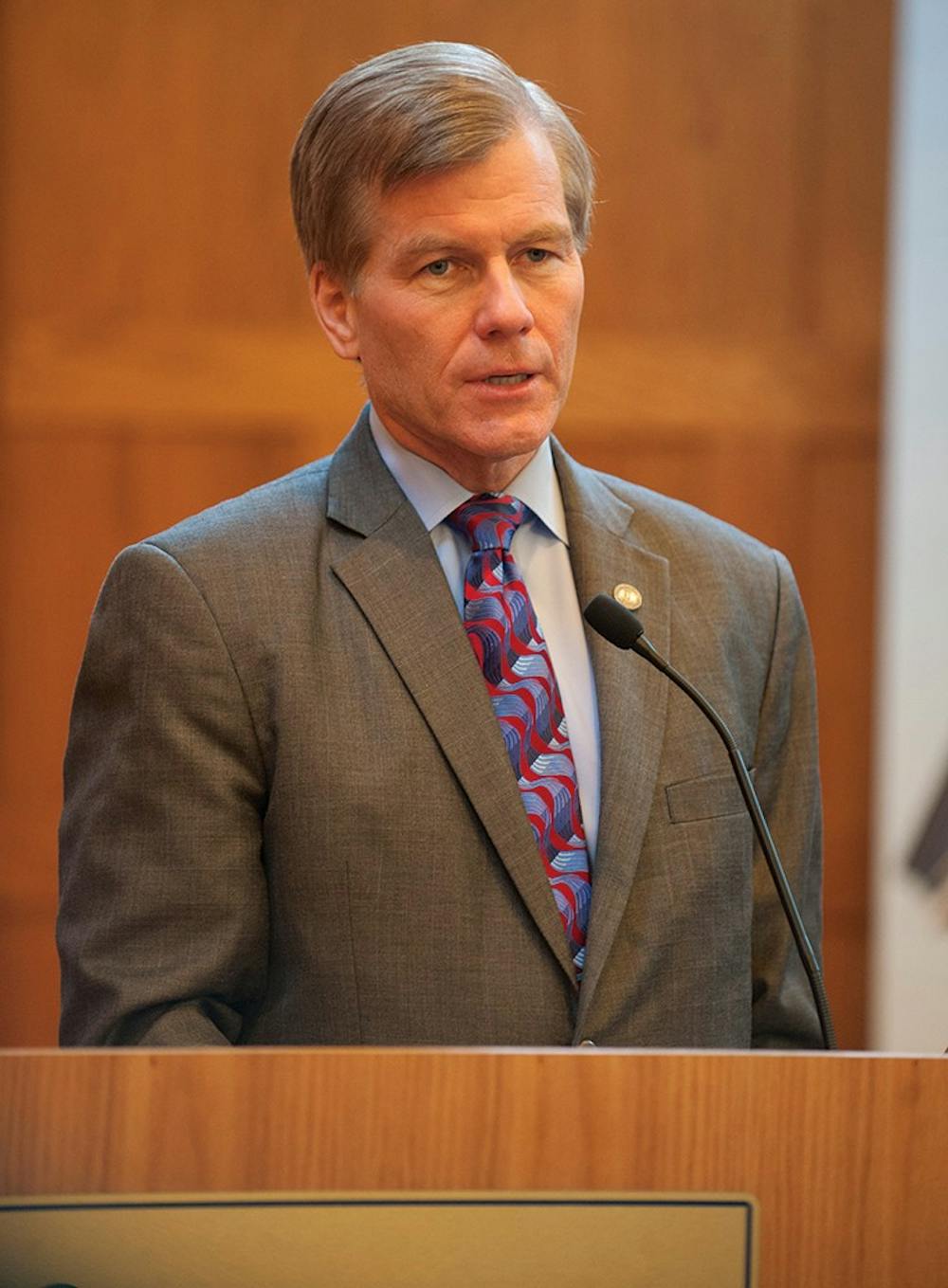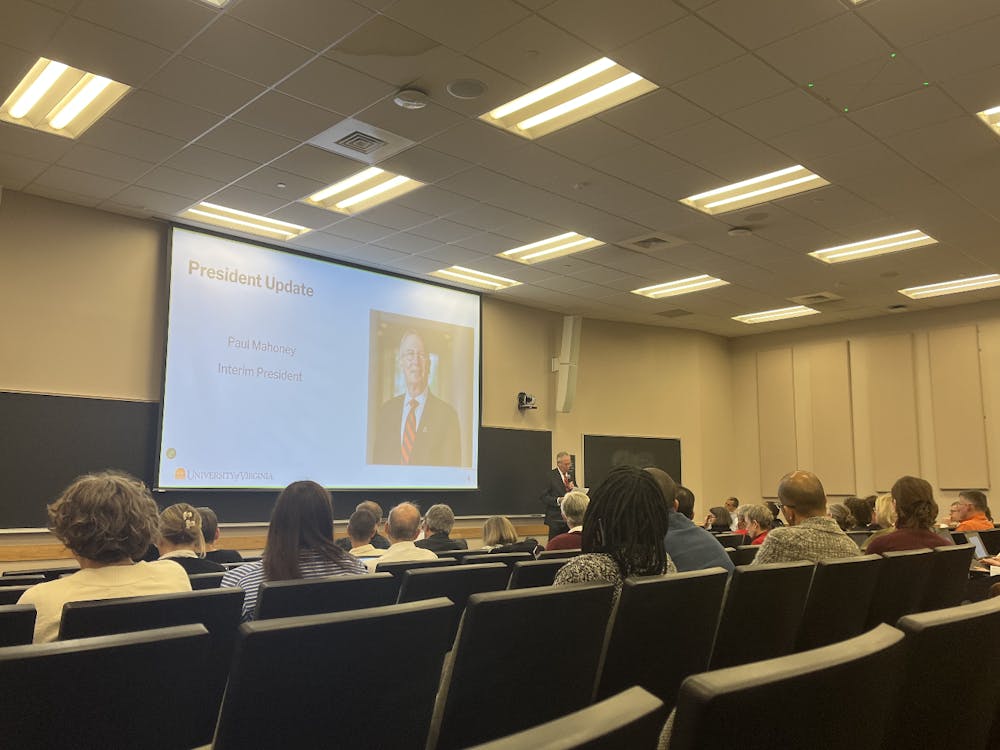The U.S. Supreme Court vacated former Virginia Gov. Bob McDonnell’s 11 charges of public corruption Monday, calling for a more narrow definition of what defines an “official act” under federal bribery law.
Chief Justice John Roberts delivered the unanimous opinion of the Court, characterizing the Justice Department’s definition of an “official act” as too broad.
In 2014, the McDonnells were convicted of having accepted more than $175,000 in gifts, loans and other benefits from Star Scientific executive Jonnie R. Williams Sr. in exchange for promoting a dietary product called Anatabloc.
McDonnell was indicted on bribery and extortion charges and sentenced to two years in prison.
McDonnell’s wife Maureen was convicted on nine charges of corruption and sentenced to one year and one day in jail. A trial judge later discarded one of her convictions — a charge of obstruction of justice.
Williams testified with an immunity agreement that “he had given the gifts and loans to the McDonnells to obtain the Governor’s ‘help with the testing’ of Anatabloc at Virginia’s medical schools.” McDonnell admitted to setting up several meetings with Virginia schools, including the University of Virginia.
While in District Court, McDonnell requested the trial jury be instructed that “merely arranging a meeting, attending an event, hosting a reception, or making a speech are not, standing alone, official acts.”
The District Court, however, declined to give that instruction to jurors.
The jury was only instructed that an “official act” encompasses “acts that a public official customarily performs,” as well as acts “in furtherance of longer-term goals” or “in a series of steps to exercise influence or achieve an end.”
The prosecution argued McDonnell had committed at least five “official acts,” including arranging meetings, hosting events and contacting other government officials to discuss Star Scientific’s product.
Although McDonnell acknowledged he had accepted gifts from Williams, he also stated that he set up meetings with state officials “literally thousands of times” as governor. He did not expect his staff to do more than attend the meeting with Williams.
During the trial, a University employee in the University Research Office testified that although she had never spoken with McDonnell about Anatabloc, she had written a pro/con list regarding the research studies.
“The first ‘pro’ was the ‘[p]erception to Governor that UVA would like to work with local companies,’ and the first ‘con’ was the ‘[p]olitical pressure from Governor and impact on future UVA requests from the Governor,” according to the opinion.
Following his conviction, McDonnell appealed to the three-judge panel of the Fourth U.S. Circuit Court of Appeals, which upheld his conviction in July 2015.
The U.S. Supreme Court later granted review of the case to clarify the meaning of an “official act” and heard his case April 27.
In its opinion, the Court moved to adopt a more limited interpretation of an “official act.”
“Setting up a meeting, calling another public official or hosting an event does not, standing alone, qualify as an ‘official act,’” Roberts wrote.
The opinion also stated that the Justice Department’s broad interpretation would raise “significant constitutional concerns” as well as concerns regarding federalism and due process.
The Court found that so long as a public official does not intend to exert pressure on another official or provide advice, simply expressing support for the research study at a meeting, event or call does not qualify as a decision or action on the study.
However, Roberts also specified in the opinion that sometimes setting up a meeting, hosting an event or making a phone call is not always an innocent act.
In some cases “a jury could conclude, for example, that the official was attempting to pressure or advise another official on a pending matter, and if the official agreed to exert that pressure or give advice in exchange for a thing of value, that would be illegal,” Roberts wrote.
The Supreme Court found the errors in the instruction given to jury members were not harmless beyond a reasonable doubt, and for that reason chose to vacate McDonnell’s convictions.
“The jury may have convicted Governor McDonnell for conduct that is not unlawful,” the opinion stated.
University Law Prof. John Jeffries said he believes the Supreme Court set a good boundary for determining what constitutes bribery.
“The Supreme Court has done the nation a good turn by constraining federal bribery law within bounds,” Jeffries said in an email statement. “As construed by lower courts, any act done by a public official in return for a campaign contribution would be a crime.”
Jeffries pointed out that the Court upheld the principle that the law must be clearly stated before an individual can be sent to jail.
“[However], what it did not do was to approve the conduct of Governor McDonnell, which the Chief Justice called ‘tawdry,’” Jeffries said.
In the opinion, Roberts said the Court’s concern “is not with tawdry tales of Ferraris, Rolexes and ball gowns” and “is instead with the broader legal implications of the Government’s boundless interpretation of the federal bribery statute.”
House Speaker William J. Howell released a statement praising the strength of the American legal system as something measured by the innocence it preserves rather than the guilty convictions it levies.
“Above all, [McDonnell’s] belief in the justice system persevered,” Howell said. “That belief, and Bob McDonnell, were vindicated today.”
McDonnell also released a statement thanking his legal team and supporters for standing with him for more than three years of legal proceedings.
“From the outset, I strongly asserted my innocence before God and under the law,” McDonnell said. “I have not and would not, betray the sacred trust the people of Virginia bestowed upon me during 22 years in elected office.”
Virginia Gov. Terry McAuliffe also released a statement about the Supreme Court’s decision Monday.
“The Governor made mistakes and has apologized, but the Supreme Court has ruled unanimously that his trial should not have resulted in a criminal conviction,” McAuliffe said.
McDonnell could still be prosecuted in a lower court should the federal government believe it has enough additional evidence to pursue a retrial.
University Law Prof. Richard Bonnie said the manner in which the new definition of an “official act” will be applied in the future depends on further actions by the lower courts.
“What the [circuit court] needs to do now is read what the Supreme Court has said and to determine whether the evidence that the prosecution introduced against Gov. McDonnell was sufficient — if it was believed by the jury to prove an official act — under the Supreme Court’s definition,” Bonnie said.
Bonnie said if the federal government decides to prosecute McDonnell again, it won’t be until 2017.







